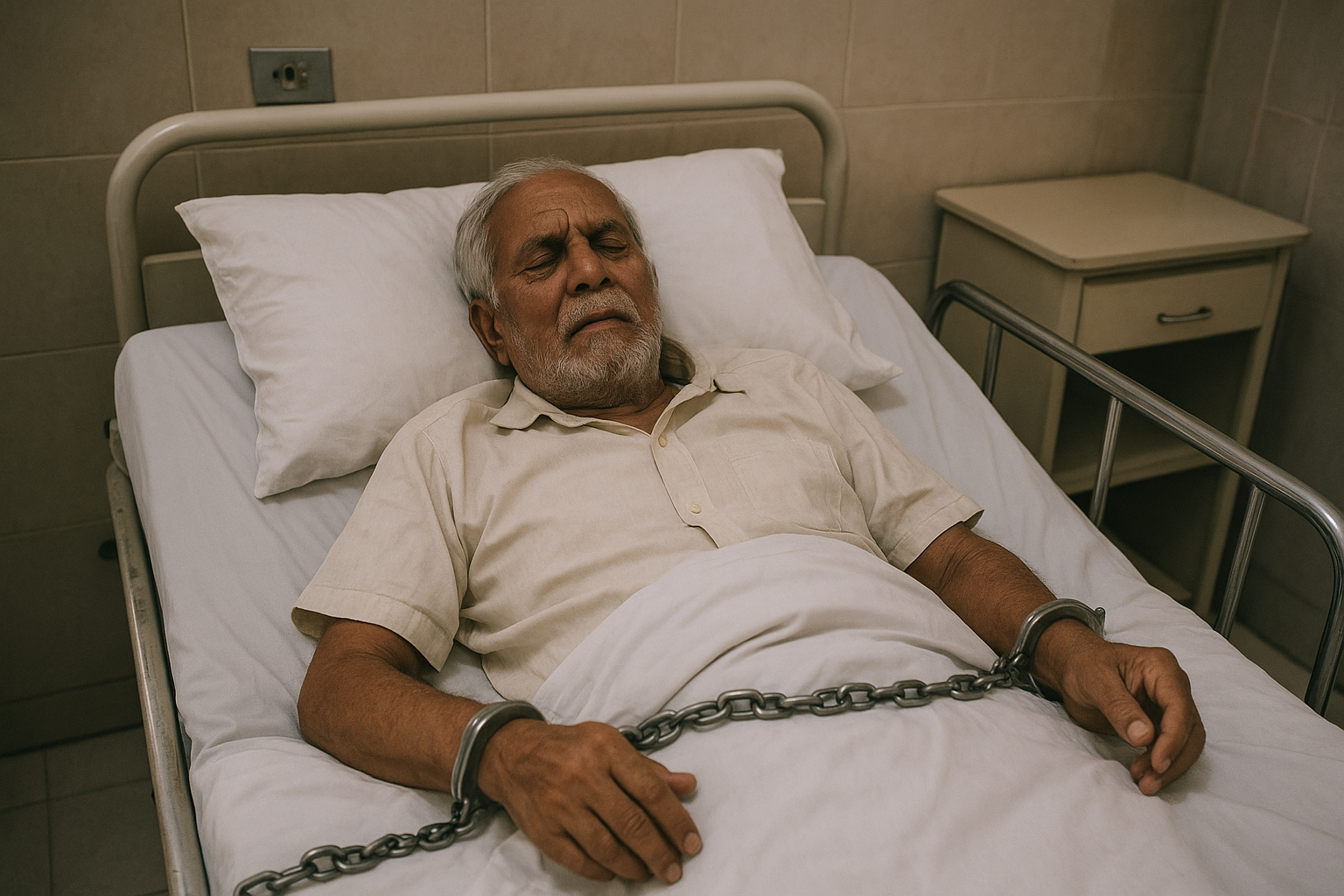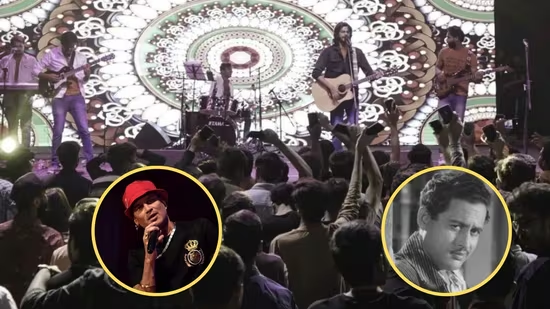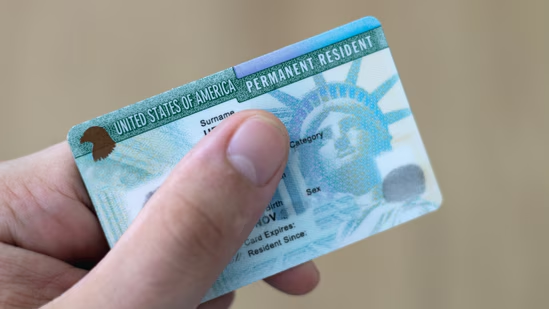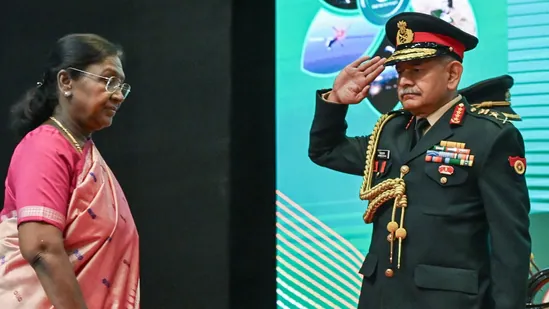The murder of an aged Awami League leader Nurul Majid Mahmud Humayun, the former aide to former Prime Minister Sheikh Hasina, has caused a furor in Bangladesh and among general public in other countries after he was captured on camera chained to a hospital bed during the last days of his life. These sickening pictures have gone viral on social media and these have cast serious doubts on the issue of human rights abuses in the hands of the Muhammad Yunus led interim government.
Humayun, 75, who served as Bangladesh Minister of Industries under the rule of Sheikh Hasina, died in the process of taking treatment at the Dhaka Medical College Hospital earlier this week. His assassination has sparked a controversy in the highly polarized political environment in Bangladesh, particularly due to accusations of state repression against how Awami League leadership, thousands of whom are currently imprisoned in jail, following the overthrow of Hasina in August 2024.
Viral Photos elicit a mass condemnation.
Publication of photos of Humayun tied to his bed in the hospital has been received with anger by rights activists, lawyers and opposition sympathisers. Human rights campaigner Nur Khan Liton referred to the act as inhuman and added that it was a symbol of extreme humiliation of individual dignity.
Keeping such a man handcuffed, sick, dying, and lying on the bed, goes against all humanitarian norms, as Liton told local media.
The photographs were described as a blatant violation of the directive of the court by advocate Abu Obyaidur Rahman, representing the Bangladesh Legal Aid and Services Trust (BLAST) in a 2018 landmark case against the use of handcuffs abusively. The High Court had given the authorities a warning before not to use shackles in all situations but only in dire situations. How do you define a flight risk and a dangerous criminal when the man in question is gravely ill and is 75 years old? he asked.
Raising the same cry, rights activist Abu Ahmed Faijul Kabir, described the incident as showing a gross failure of the state. He pointed out that a former minister cum freedom fighter worthy of dignity had been humiliated instead in his deathbed.
Governments Justify their Policies.
Prison officials instead have refuted wrongdoing. They have asserted in a statement made on Wednesday that the scandalous images were captured previously during the hospitalisation of Humayun and that the treatment of the former minister was in accordance with the well-defined rules.
The statement denied the allegations of inhuman treatment stating that the Dhaka Central Jail authorities are responsible and that they take care of the rights and dignity of every inmate.
Nonetheless, the explanation has not helped to assuage the increasing criticism and many claim that the interim government is not only targeting political opponents but also neglecting to fulfill the constitutional rights.
Political Crackdown Worsens.
The row breaks out amidst a continuing crackdown on Awami League leaders since Sheikh Hasina was ousted in power last year. In 2024, former Nobel laureate Muhammad Yunus was named leader of an interim caretaker government following weeks of bloody and student-led demonstrations that forced Hasina to step down.
Since that time, dozens of the highest Awami League leaders have gone to jail on account of corruption charges, among other violence instigation crimes. Opponents and outside observers, however, say that the accusations are politically driven and are meant to weaken the long ruling party of Hasina. Other detainees have also been reported to die in state hands, which has only angered people and raised allegations of systematic human rights abuse.
Domestic and international rebuttal.
His controversial death at the hands of Nurul Majid Mahmud Humayun has now presented fresh discussion about how Bangladesh handles political prisoners. Various foreign human rights groups are likely to hold the government of Yunus to account especially considering the fact that Bangladesh is bound by international human rights conventions.
Back at home, the event has further instilled fear among Awami League supporters who view the episode as indicative of the heavy handed nature of the government. Such controversies might continue to erode the public trust in the legitimacy of the interim administration, which analysts fear would be disastrous to the already delicate politics of Bangladesh.
A Question of Human Dignity
Most importantly, the episode has brought back national discourse regarding the treatment of even most controversial political figures in a democracy. The sight of dying ex-minister and freedom fighter chained in his death-throes has sounded a chord of the emotions of many. This, according to one rights advocate is not a political question but a question of humanity. No one, irrespective of his or her background, is required to die in chains.
As the outrage persists online and on the streets, the murder of the assistant of Sheikh Hasina has emerged as a catalyst of the Bangladeshi communities anxious about dwindling political liberties, state cruelty and the loss of fundamental human dignity.
source: NDTV
Looking for website Designing ? Connect with wovved today.






